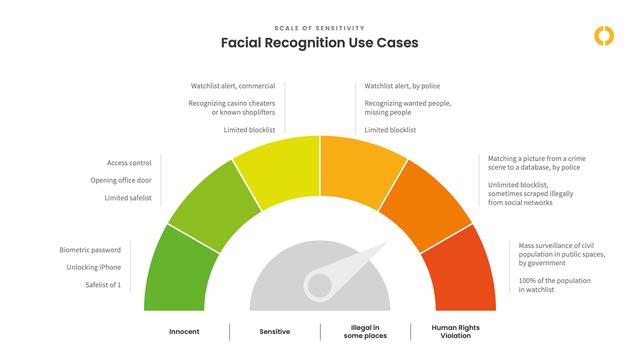NEW YORK--(BUSINESS WIRE)--The United States government is seeking information from both the public and private sector on how biometric data is being used for identification purposes, according to a request for information (RFI) recently posted on the Federal Register. The Office of Science and Technology Policy (OSTP), led by Dr. Eric Lander – 11th Director of the OSTP, the first in U.S. history to serve in the President’s Cabinet, and to serve as the President’s Science Advisor – issued the RFI. The White House OSTP is seeking input on any “past deployments, proposals, pilots or trials,” as well as any “current use of biometric technologies for…identity verification, identification of individuals, and inference of attributes including individual mental and emotional states,” according to the RFI.
Oosto responded to the RFI to emphasize the company’s mission in developing and deploying facial recognition technology that serves the best interests of society by helping to protect and preserve lives, properties, employee safety, and intellectual assets. The company defined commercial use cases as uniquely distinct from law enforcement use cases to help underscore how facial recognition technology is an asset to physical security, and how its application varies within different societal contexts.
In the open letter, Oosto CEO, Avi Golan, issued a call to action for regulatory authorities to implement responsible and meaningful policies that support the deployment of ethical facial recognition technologies which positively impact safety and security, productivity, and customer experience, with appropriate safeguards to privacy and personal identity.
“It is critical that government leaders recognize the power of visual AI to save and sustain lives,” stated Golan. “Visual AI today is often misunderstood or misrepresented. As a world-leading firm in this space, we encourage regulators to conduct thoughtful due diligence in order to provide meaningful guidance and an appropriate legal framework regulating the use of biometrics in context-specific scenarios. Moreover, we need a cohesive national policy for the ethical use of facial recognition vs. a patchwork quilt of differing state-level regulations which make commercial compliance challenging.”
Facial recognition technology offers numerous operational benefits that enhance the safety and productivity of commercial entities, the public service sector, and law-abiding citizens. Context-specific use cases, however, have been cited as a key distinguishing factor in determining public favor, or opposition to, its use. Research has shown that public trust or mistrust in biometrics is not driven by a specific type of biometric technology, but rather by the contextual factors involved in the application.

There has also been considerable discourse about the role of demographic bias and how that influences facial recognition - such claims have been overstated. The Security Industry Association (SIA) has noted that the top-tier vendors of facial recognition algorithms have demonstrated “undetectable” demographic differences, while a lead researcher from the U.S. National Institute of Standards and Technology (NIST) found that results from bias studies were being “overgeneralized and misinterpreted” by some media entities.
Golan continued, “Facial biometrics technology can empower businesses and government agencies with a safe and holistic solution while continuing to safeguard civil liberties and human privacy rights; one is not exclusive of the other. We are confident that as the facial recognition industry matures, and adoption rates continue to increase, optimal outcomes will be achievable for all stakeholders. This starts with a common definition of what constitutes “ethical facial recognition.”
To learn more about Oosto, please visit Oosto.com.
About Oosto
Leading organizations in the financial services, buildings, retail, health, sports, gaming, and other Fortune 500 companies are using Oosto’s leading visual AI platform to positively impact safety, productivity, and customer experience. Oosto enables enterprises to better protect their customers, guests, and employees by identifying security and safety threats in real-time without compromising on fair and ethical use. Founded in 2015, Oosto operates globally through a network of offices and distributors and is backed by leading investors including Softbank Vision Fund, Eldridge, Qualcomm Ventures, and DFJ Growth. To learn more about how Oosto incorporates ethical AI and data privacy into its solutions and processes, please see: Why Trust Oosto.




